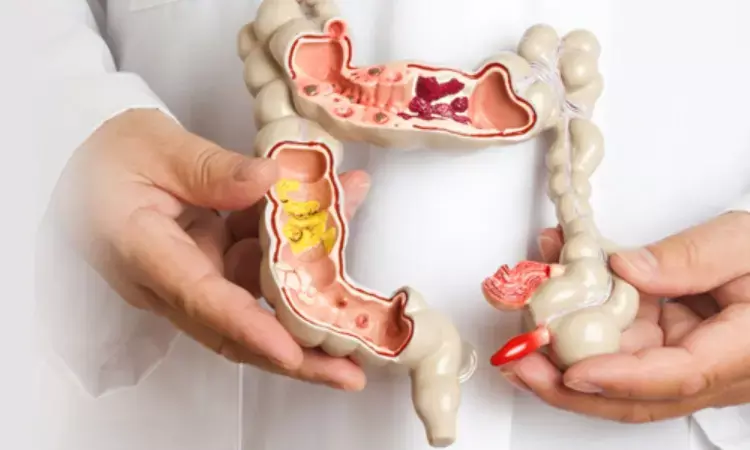- Home
- Medical news & Guidelines
- Anesthesiology
- Cardiology and CTVS
- Critical Care
- Dentistry
- Dermatology
- Diabetes and Endocrinology
- ENT
- Gastroenterology
- Medicine
- Nephrology
- Neurology
- Obstretics-Gynaecology
- Oncology
- Ophthalmology
- Orthopaedics
- Pediatrics-Neonatology
- Psychiatry
- Pulmonology
- Radiology
- Surgery
- Urology
- Laboratory Medicine
- Diet
- Nursing
- Paramedical
- Physiotherapy
- Health news
- Fact Check
- Bone Health Fact Check
- Brain Health Fact Check
- Cancer Related Fact Check
- Child Care Fact Check
- Dental and oral health fact check
- Diabetes and metabolic health fact check
- Diet and Nutrition Fact Check
- Eye and ENT Care Fact Check
- Fitness fact check
- Gut health fact check
- Heart health fact check
- Kidney health fact check
- Medical education fact check
- Men's health fact check
- Respiratory fact check
- Skin and hair care fact check
- Vaccine and Immunization fact check
- Women's health fact check
- AYUSH
- State News
- Andaman and Nicobar Islands
- Andhra Pradesh
- Arunachal Pradesh
- Assam
- Bihar
- Chandigarh
- Chattisgarh
- Dadra and Nagar Haveli
- Daman and Diu
- Delhi
- Goa
- Gujarat
- Haryana
- Himachal Pradesh
- Jammu & Kashmir
- Jharkhand
- Karnataka
- Kerala
- Ladakh
- Lakshadweep
- Madhya Pradesh
- Maharashtra
- Manipur
- Meghalaya
- Mizoram
- Nagaland
- Odisha
- Puducherry
- Punjab
- Rajasthan
- Sikkim
- Tamil Nadu
- Telangana
- Tripura
- Uttar Pradesh
- Uttrakhand
- West Bengal
- Medical Education
- Industry
Certain Dietary therapies improve outcomes in non-constipated irritable bowel syndrome

UK: In a new study conducted by Anupam Rej and his team, it was seen that a low FODMAP diet (LFD), traditional dietary advice (TDA), and gluten-free diet (GFD) are all effective treatments for non-constipated irritable bowel syndrome (IBS), although TDA is the most cost-effective and convenient for patients.
The findings of the study were published in Clinical Gastroenterology and Hepatology.
Despite little or low-quality data, many diets are advocated as first-line therapy for non-constipated IBS. Researchers conducted a randomized experiment comparing TDA to the LFD and GFD in this study.
in this study patients with non-constipated IBS as defined by Rome IV were randomly assigned to one of three diets: LFD, TDA, or GFD (the latter allowing for minute gluten cross-contamination). The primary end outcome was clinical response after four weeks of dietary changes, as defined by a 50-point decrease in IBS symptom severity (IBS-SSS). Secondary endpoints included (1) changes in individual IBS-SSS items among clinical responders, (2) acceptability and food-related quality of life with dietary therapy, (3) changes in nutritional intake, (4) changes in stool dysbiosis index, and (5) baseline factors associated with clinical response.
The results of this study stated as follow:
1. The major end objective of a 50-point decrease in IBS-SSS was attained by 42% (n = 14/33) of those who used TDA, 55% (n = 18/33) of those who used LFD, and 58% (n = 19/33) of those who used GFD (P =.43).
2. Regardless of diet, respondents improved on IBS-SSS items in the same manner.
3. Individuals found TDA to be less expensive (P.01), less time-consuming to buy for (P.01), and simpler to follow while dining out (P =.03) than the GFD and LFD.
4. TDA was also easier to implement in daily life than LFD (P =.02).
5. The overall decreases in vitamin and macronutrient consumption did not differ substantially between diets. However, as compared to the GFD and TDA groups, the LFD group exhibited the highest reduction in total FODMAP content.
6. The changes in the stool dysbiosis index were comparable across diets, with 22%–29% exhibiting reduced dysbiosis, 35%–39% showing no change, and 35%–40% indicating increased dysbiosis (P =.99).
7. The baseline clinical features and stool dysbiosis score did not predict nutritional treatment response.
In conclusion, When compared to other restrictive diets for relieving non-constipated IBS symptoms, TDA was similarly effective and more patient-friendly.
Reference:
Rej, A., Sanders, D. S., Shaw, C. C., Buckle, R., Trott, N., Agrawal, A., & Aziz, I. (2022). Efficacy and Acceptability of Dietary Therapies in Non-Constipated Irritable Bowel Syndrome: A Randomized Trial of Traditional Dietary Advice, the Low FODMAP Diet, and the Gluten-Free Diet. In Clinical Gastroenterology and Hepatology. Elsevier BV. https://doi.org/10.1016/j.cgh.2022.02.045
Medical Dialogues consists of a team of passionate medical/scientific writers, led by doctors and healthcare researchers. Our team efforts to bring you updated and timely news about the important happenings of the medical and healthcare sector. Our editorial team can be reached at editorial@medicaldialogues.in.
Dr Kamal Kant Kohli-MBBS, DTCD- a chest specialist with more than 30 years of practice and a flair for writing clinical articles, Dr Kamal Kant Kohli joined Medical Dialogues as a Chief Editor of Medical News. Besides writing articles, as an editor, he proofreads and verifies all the medical content published on Medical Dialogues including those coming from journals, studies,medical conferences,guidelines etc. Email: drkohli@medicaldialogues.in. Contact no. 011-43720751


